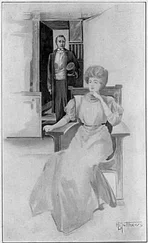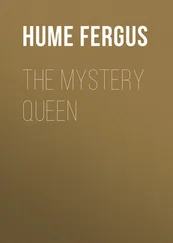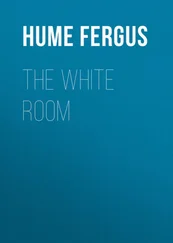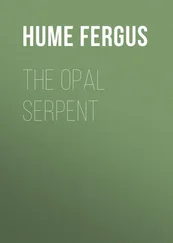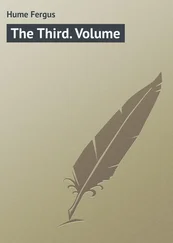Fergus Hume - The Wooden Hand
Здесь есть возможность читать онлайн «Fergus Hume - The Wooden Hand» — ознакомительный отрывок электронной книги совершенно бесплатно, а после прочтения отрывка купить полную версию. В некоторых случаях можно слушать аудио, скачать через торрент в формате fb2 и присутствует краткое содержание. Жанр: Классический детектив, foreign_detective, foreign_prose, foreign_language, на английском языке. Описание произведения, (предисловие) а так же отзывы посетителей доступны на портале библиотеки ЛибКат.
- Название:The Wooden Hand
- Автор:
- Жанр:
- Год:неизвестен
- ISBN:нет данных
- Рейтинг книги:4 / 5. Голосов: 1
-
Избранное:Добавить в избранное
- Отзывы:
-
Ваша оценка:
- 80
- 1
- 2
- 3
- 4
- 5
The Wooden Hand: краткое содержание, описание и аннотация
Предлагаем к чтению аннотацию, описание, краткое содержание или предисловие (зависит от того, что написал сам автор книги «The Wooden Hand»). Если вы не нашли необходимую информацию о книге — напишите в комментариях, мы постараемся отыскать её.
The Wooden Hand — читать онлайн ознакомительный отрывок
Ниже представлен текст книги, разбитый по страницам. Система сохранения места последней прочитанной страницы, позволяет с удобством читать онлайн бесплатно книгу «The Wooden Hand», без необходимости каждый раз заново искать на чём Вы остановились. Поставьте закладку, и сможете в любой момент перейти на страницу, на которой закончили чтение.
Интервал:
Закладка:
"But the wire is signed by himself, you stupid woman," said Eva.
"Well and good," said Mrs. Merry, "but dreams are dreams, whatever you may say, deary. Your pa was coming before and put it off; now he put it off again, and-"
"Then you believe he sent the wire. There, there, I know you will contradict me," said Miss Strode crossly, "I'm going to bed."
"You'll be woke up soon," cried Mrs. Merry after her; "them knocks-"
Eva heard no more. She went to her room, and, wearied out by waiting and anxiety, retired speedily to bed. Mrs. Merry remained seated before the kitchen fire, and even when twelve struck she did not move. The striking of the clock woke Eva. She sat up half asleep, but was speedily wide awake. She heard footsteps, and listened breathlessly. A sharp knock came to the front door. Then four soft knocks. With a cry she sprang from her bed, and ran to the door. Mrs. Merry met her, and kept her back.
"They've brought him home, miss," she said; "the dream's come true."
CHAPTER IV
MYSTERY
Mr. Hill's house at the far end of the village was an eccentric building. Originally it had been a labourer's cottage, and stood by itself, a stone-throw away from the crooked highway which bisected Wargrove. On arriving in the neighbourhood some twenty-five years before, Mr. Hill had bought the cottage and five acres of land around. These he enclosed with a high wall of red brick, and then set to work to turn the cottage into a mansion. As he was his own architect, the result was a strange mingling of styles.
The original cottage remained much as it was, with a thatched roof and whitewashed walls. But to the left, rose a round tower built quite in the mediæval style, to the right stretched a two-story mansion with oriel windows, a terrace and Tudor battlements. At the back of this, the building suddenly changed to a bungalow with a tropical verandah, and the round tower stood at the end of a range of buildings built in the Roman fashion with sham marble pillars, and mosaic encrusted walls. Within, the house was equally eccentric. There was a Spanish patio, turned, for the sake of the climate, into a winter garden and roofed with glass. The dining-room was Jacobean, the drawing-room was furnished in the Louis Quatorze style, Mr. Hill's library was quite an old English room with casements and a low roof. There were many bedrooms built in the severe graceful Greek fashion, a large marble swimming-bath after the ancient Roman type, and Mr. Hill possessed a Japanese room, all bamboo furniture and quaintly pictured walls, for his more frivolous moods. Finally there was the music-room with a great organ, and this room was made in the similitude of a church. On these freaks and fancies Mr. Hill spent a good deal of money, and the result was an olla-podrida of buildings, jumbled together without rhyme or reason. Such a mansion-if it could be called so-might exist in a nightmare, but only Mr. Hill could have translated it into fact. Within and without, the place was an example of many moods. It illustrated perfectly the mind of its architect and owner.
Allen's father was a small, delicate, dainty little man with a large head and a large voice, which boomed like a gong when he was angry. The man's head was clever and he had a fine forehead, but there was a streak of madness in him, which led him to indulge himself in whatever mood came uppermost. He did not exercise the least self-control, and expected all around him to give way to his whims, which were many and not always agreeable. Some one called Mr. Hill a brownie, and he was not unlike the pictures of that queer race of elves. His body was shapely enough, but as his legs were thin and slightly twisted, these, with his large head, gave him a strange appearance. His face was clean-shaven, pink and white, with no wrinkles. He had a beautifully formed mouth and a set of splendid teeth. His fair hair, slightly-very slightly-streaked with grey, he wore long, and had a trick of passing his hand through it when he thought he had said anything clever. His hands were delicate-real artistic hands-but his feet were large and ill-formed. He strove always to hide these by wearing wide trousers. Both in winter and summer he wore a brown velvet coat and white serge trousers, no waistcoat, and a frilled shirt with a waist-band of some gaudy Eastern stuff sparkling with gold thread and rainbow hues. When he went out, he wore a straw hat with a gigantic brim, and as he was considerably under the ordinary height, he looked strange in this headgear. But however queer his garb may have been in the daytime, at night Mr. Hill was always accurately attired in evening dress of the latest cut, and appeared a quiet, if somewhat odd, English gentleman.
This strange creature lived on his emotions. One day he would be all gaiety and mirth; the next morning would see him silent and sad. At times he played the organ, the piano, the violin; again he would take to painting; then he would write poems, and anon his mood would change to a religious one. Not that he was truly religious. He was a Theosophist, a Spiritualist, sometimes a Roman Catholic, and at times a follower of Calvin. Lately he fancied that he would like to be a Buddhist. His library, a large one, was composed of various books bought in different moods, which illustrated-like his house-the queer jumbled mind of the man. Yet with all his eccentricity Mr. Hill was far from being mad. He was clever at a bargain, and took good care of the wealth, which he had inherited from his father, who had been a stockbroker. At times Mr. Hill could talk cleverly and in a businesslike way; at others, he was all fantasy and vague dreams. Altogether an irritating creature. People said they wondered how Mrs. Hill could put up with such a changeling in the house.
Mrs. Hill put up with it-though the general public did not know this-simply for the sake of Allen, whom she adored. It was strange that Allen, tall, stalwart, practical, and quiet, with a steadfast mind and an open nature, should be the son of the freakish creature he called father. But the young man was in every way his mother's son. Mrs. Hill was tall, lean, and quiet in manner. Like Mrs. Merry, she usually wore black, and she moved silently about the house, never speaking, unless she was spoken too. Originally she had been a bright girl, but marriage with the brownie had sobered her. Several times during her early married life she was on the point of leaving Hill, thinking she had married a madman, but when Allen was born, Mrs. Hill resolved to endure her lot for the sake of the boy. Hill had the money, and would not allow the control of it to pass out of his hands. Mrs. Hill had come to him a pauper, the daughter of an aristocratic scamp who had gambled away a fortune. Therefore, so that Allen might inherit his father's wealth, which was considerable, the poor woman bore with her strange husband. Not that Hill was unkind. He was simply selfish, emotional, exacting, and irritating. Mrs. Hill never interfered with his whims, knowing from experience that interference would be useless. She was a cypher in the house, and left everything to her husband. Hill looked after the servants, arranged the meals, ordered the routine, and danced through life like an industrious butterfly.
As to Allen, he had speedily found that such a life was unbearable, and for the most part remained away. He had early gone to a public school, and had left it for college; then he had studied in London to be an engineer and took the first opportunity to procure work beyond the seas. He wrote constantly to his mother, but hardly ever corresponded with his father. When he came to England he stopped at "The Arabian Nights" – so the jumbled house was oddly named by its odd owner-but always, he had gone away in a month. On this occasion the meeting with Eva kept him in Wargrove, and he wished to be sure of her father's consent to the match before he went back to South America. Meantime his partner carried on the business in Cuzco. Mr. Hill was not ill pleased that Allen should stop, as he was really fond of his son in his own elfish way. Also he approved of the engagement to Eva, for whose beauty he had a great admiration.
Читать дальшеИнтервал:
Закладка:
Похожие книги на «The Wooden Hand»
Представляем Вашему вниманию похожие книги на «The Wooden Hand» списком для выбора. Мы отобрали схожую по названию и смыслу литературу в надежде предоставить читателям больше вариантов отыскать новые, интересные, ещё непрочитанные произведения.
Обсуждение, отзывы о книге «The Wooden Hand» и просто собственные мнения читателей. Оставьте ваши комментарии, напишите, что Вы думаете о произведении, его смысле или главных героях. Укажите что конкретно понравилось, а что нет, и почему Вы так считаете.

